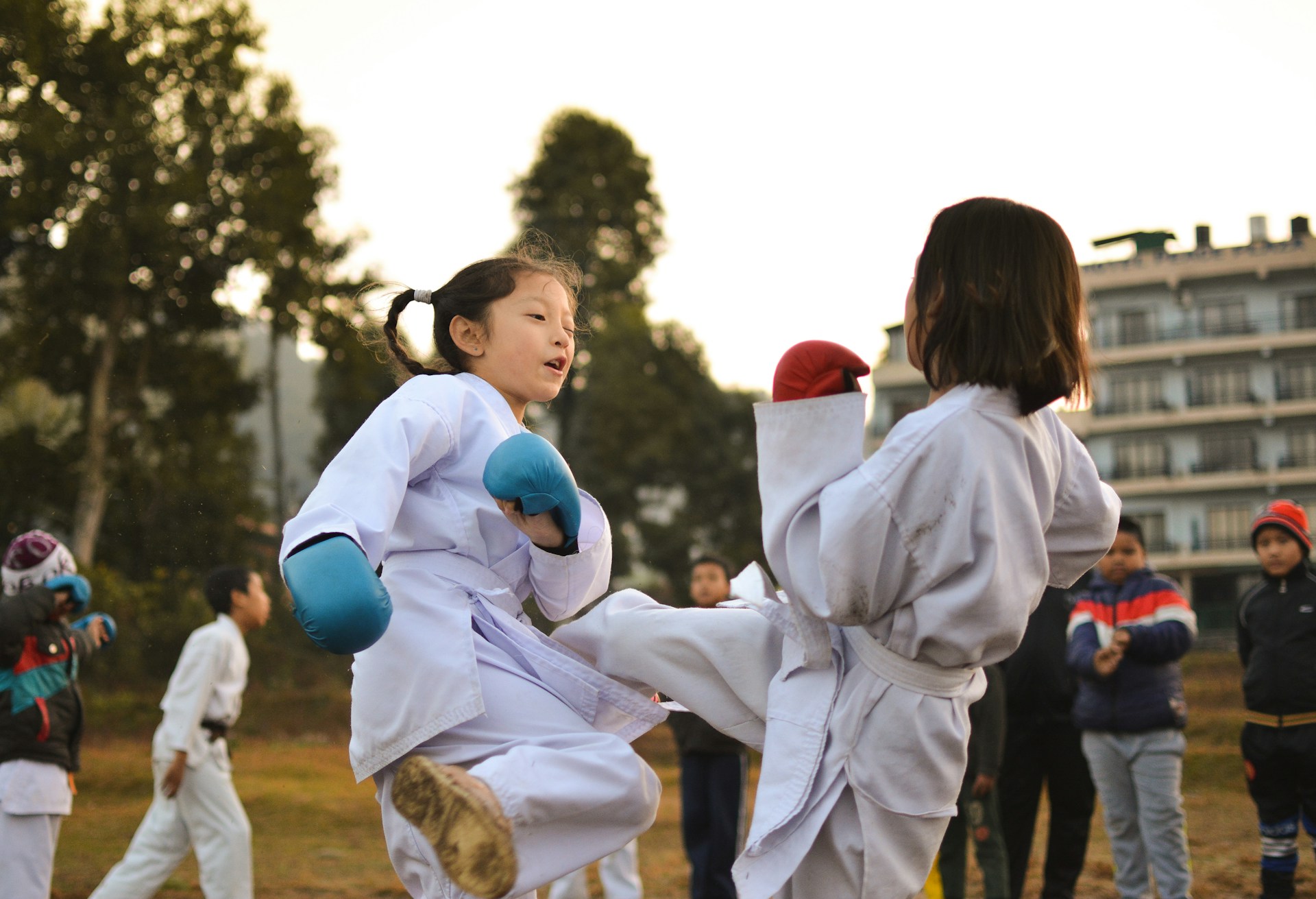The Mental Benefits of Karate for Children

1. Cultivating Resilience and Patience
Karate is an art that teaches children the value of patience and perseverance. Progress in Karate Schools takes time and dedication, and children quickly understand the importance of persistent effort. This life lesson encourages them to set goals, work diligently, and persist, fostering resilience and patience that will serve them well in various aspects of their lives.
2. Enhanced Focus and Concentration Skills
Karate is a discipline that demands mental focus and concentration. Through repetitive movements and intricate techniques, children learn to hone their attention on the task at hand. This mental training not only improves their performance in karate but also transfers to academic pursuits, boosting their ability to concentrate and absorb information effectively.
3. Stress Relief and Emotional Balance
Living in today’s fast-paced world can be overwhelming for children, and stress can manifest in various ways. Karate offers a constructive outlet for them to release stress through controlled physical movements. Additionally, the mental resilience developed through karate helps children manage stress and emotions in a balanced manner, promoting better mental and emotional well-being.
4. Building Self-Confidence and Esteem
Karate is a journey of progression and self-discovery. As children advance through the ranks and master new techniques, their self-confidence and self-esteem receive a significant boost. Recognition of their achievements within the Karate School positively impacts their self-image and empowers them to approach challenges with confidence and determination.

5. Fostering Respect and Discipline
Karate is deeply ingrained in respect and discipline. Children learn to respect their instructors, their fellow students, and the values upheld within the Karate School. The structured environment instills discipline, teaching kids to follow rules and guidelines. This discipline extends beyond the dojo, influencing their behavior at home, school, and in the community.
6. Promoting Problem-Solving and Critical Thinking
Karate involves strategic thinking and quick decision-making, making it more than just a physical activity. Children learn to analyze opponents and situations, finding effective solutions and making quick judgments. These problem-solving skills, honed during karate classes, extend to academic challenges, enhancing their critical thinking abilities.
7. Building a Sense of Community and Camaraderie
Karate Schools often emphasize building a sense of community among students. The shared journey of learning karate, the encouragement from peers, and the mentorship from instructors create lasting friendships. This sense of belonging and camaraderie nurtures positive mental health, making children feel accepted and supported within the karate community.
Conclusion
Karate Classes and Lessons in South Africa provide an avenue for comprehensive growth, nurturing not only physical fitness but also mental and emotional well-being. The mental attributes cultivated through karate—resilience, focus, discipline, confidence, and problem-solving abilities—are essential for a child's holistic development. These qualities extend beyond the dojo, impacting their academic endeavors, relationships, and future endeavors. Embrace the opportunity to empower your child’s mind and spirit through karate—it's a pathway to a more confident, balanced, and resilient young individual.

